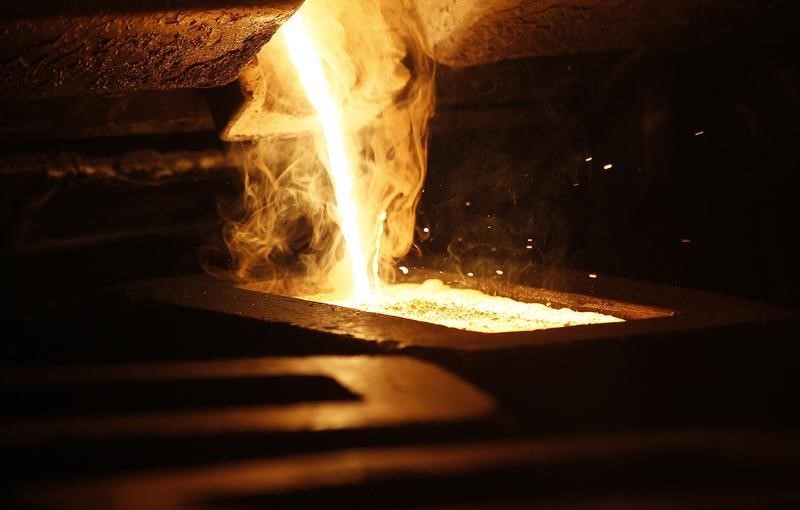
Investing.com– Gold prices moved little in Asian trade on Friday, pressured by a rebound in the dollar as the prospect of fewer U.S. interest rate cuts largely offset optimism over some cooling in inflation.
While the yellow metal marked some gains for the week, it was nursing a sharp tumble from record highs in the face of high interest rates.
rose 0.1% to $2,305.23 an ounce, while expiring in August rose 0.1% to $2,320.15 an ounce by 00:56 ET (04:56 GMT).
Gold pressured by outlook of high rates
Gold and broader metal prices retreated in recent sessions after the Federal Reserve said it expected to cut interest rates only once in 2024, compared to earlier forecasts for three cuts.
While the yellow metal marked some gains after softer-than-expected data weighed on the dollar, traders eventually pivoted back into the dollar following the Fed’s forecast.
Softer-than-expected data did little to deter the rebound, while Treasury yields also recovered from lows hit earlier this week.
Higher-for-longer rates bode poorly for gold and other metals, given that they increase the opportunity cost of investing in non-yielding assets.
This notion kept other precious metals trading in a tight range on Friday. rose 0.3% to $957.80 an ounce, while fell 0.2% to $28.992 an ounce. Both metals were also set for muted weekly performances.
Copper prices head for muted week as China sentiment sours
Among industrial metals, copper prices rose marginally on Friday but were set for a middling performance this week amid pressure from a stronger dollar.
Benchmark on the London Metal Exchange rose 0.3% to $9,824.0 a tonne, while one-month rose 0.2% to $4.4945 a pound.
Sentiment towards China soured after the European Union joined the U.S. in imposing tariffs on the import of Chinese electric vehicles. Not only do the tariffs present headwinds for the fast-growing industry, they also present some headwinds for copper demand, given that EVs are a major consumer of the red metal.
Additionally, increased trade ructions between the world’s biggest economies spurred concerns over a renewed trade war.

